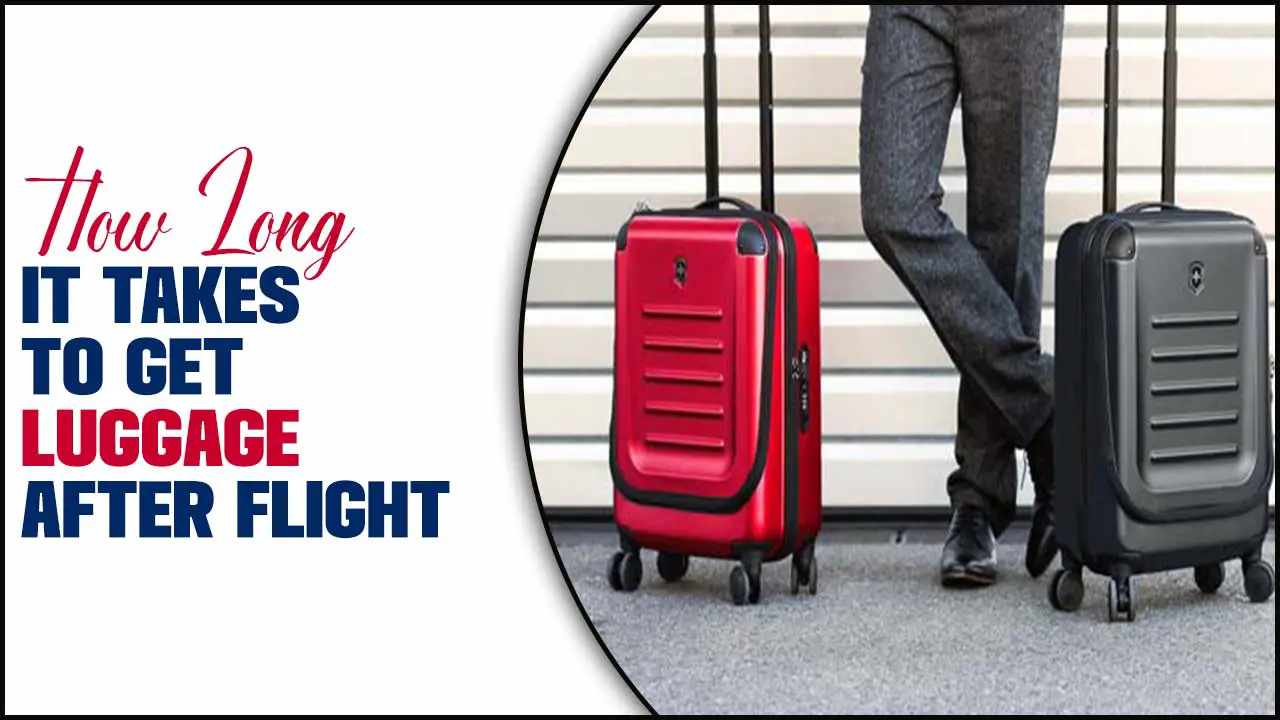As frequent travelers, we all know the frustration of waiting at the baggage claim carousel for what seems like an eternity. It’s natural to wonder why it takes so long for our luggage to arrive after a flight. Factors like airport size, the number of flights arriving at the same time, and airline efficiency can all impact how quickly bags are delivered to passengers.
Here we’ll dive deep into the world of luggage retrieval duration. We’ll explore the factors that influence how long it takes to get luggage after flight, including airport efficiency and passenger class. We’ll also share some interesting case studies on luggage retrieval times in major airports. So sit back, relax, and let’s uncover the fascinating world of luggage retrieval after a flight.
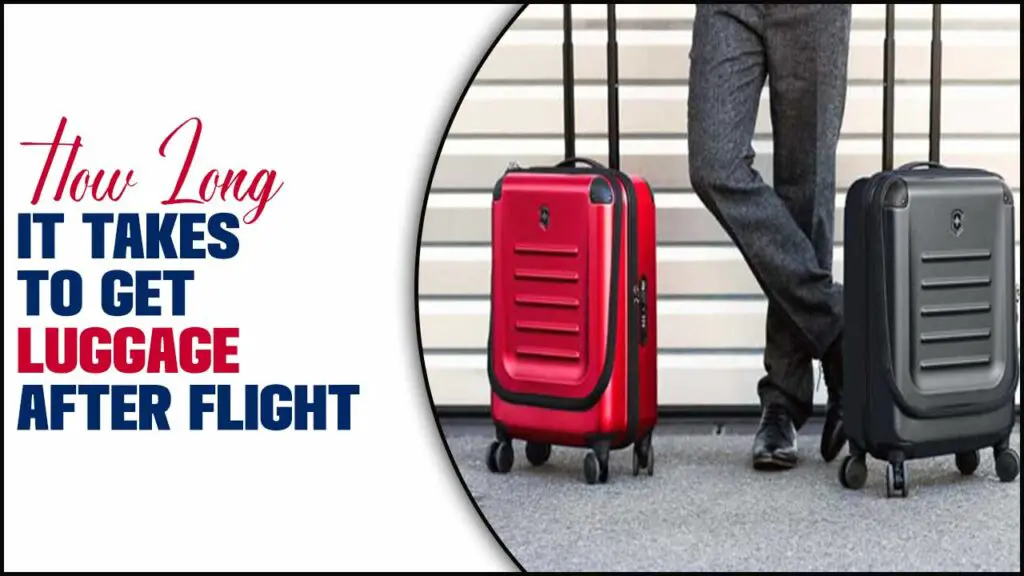
How Long It Takes To Get Luggage After Flight – Explained In Detail
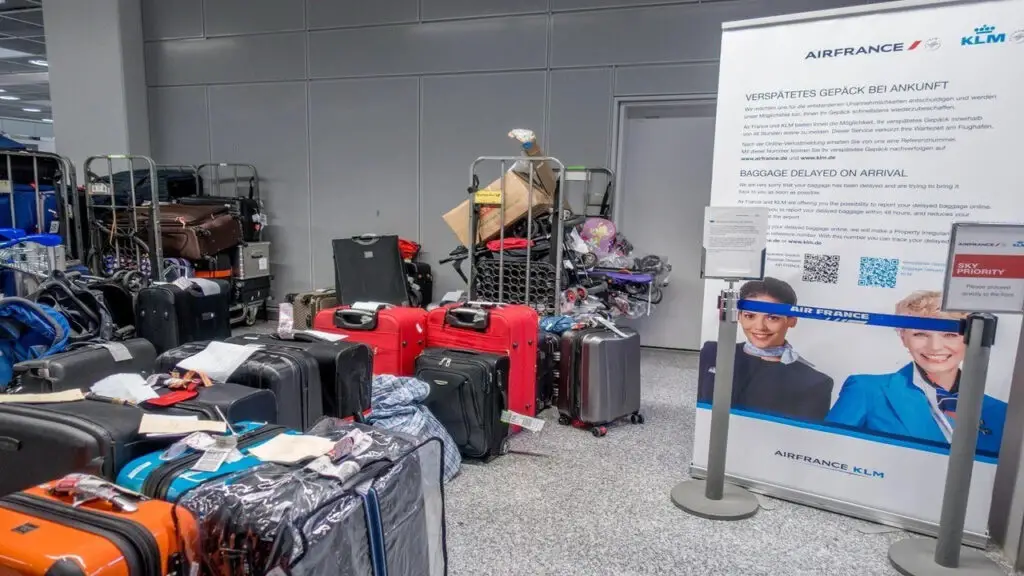
Here we discuss how long it takes to get luggage after flight. The time it takes to receive your luggage after a flight can vary depending on several factors. Generally, your luggage can take 10 to 30 minutes to arrive at the designated baggage claim area. This time frame allows for the plane’s unloading, transporting the bags to the terminal, and sorting them onto the conveyor belt.
However, during peak travel times or if multiple flights are arriving simultaneously. It may take longer for your luggage to deliver. It is always a good idea to be patient and prepared for any potential delays when waiting for your luggage after a flight.
Factors Influencing Luggage Retrieval Time
Factors that can influence the time it takes to retrieve luggage after a flight include the size and layout of the airport, arrival time of the flight, efficiency of baggage handling, customs and immigration procedures, baggage mishandling or delays, and the passenger’s travel class and loyalty status.
Larger airports may have longer retrieval times due to the distance between the plane and the baggage claim area, while airlines with efficient processes may have shorter retrieval times. International travelers may experience longer retrieval times due to customs and immigration procedures. Passengers traveling in premium classes or with higher loyalty status may receive priority baggage handling, resulting in shorter retrieval times.
The Average Duration To Retrieve Luggage After A Flight
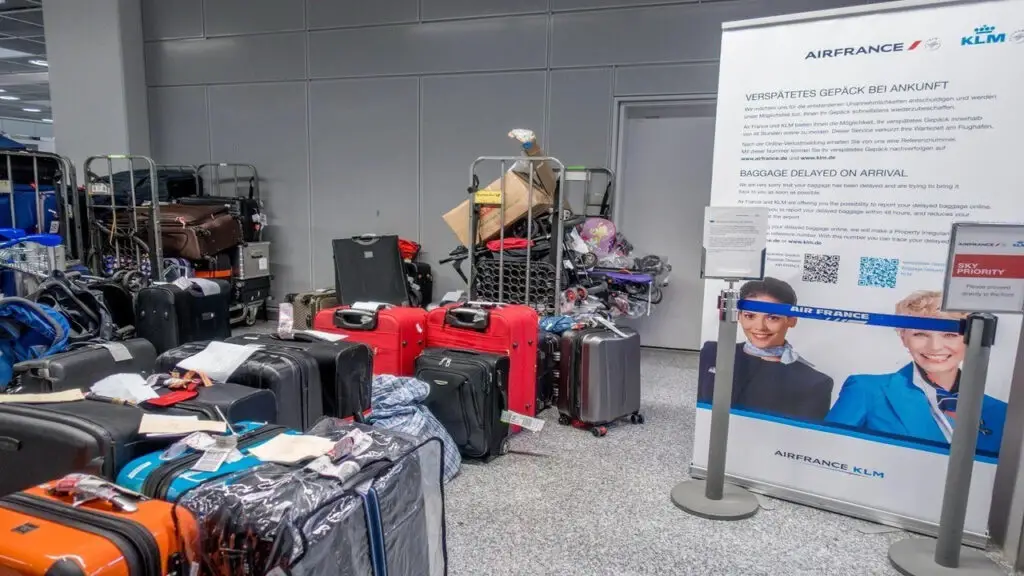
Factors such as airport size and efficiency can affect the duration it takes to retrieve luggage after a flight. The typical timeline involves unloading the luggage from the plane and bringing it to the baggage claim area. Consider choosing a smaller airport or opting for carry-on luggage to speed up the process. In case of lost or delayed luggage, you can take steps to resolve the issue. Minimize inconvenience by packing essential items in your carry-on bag.
How Are First-Class Passengers Affected?

First-class passengers receive the perk of priority baggage handling. This means their luggage give high priority and unloaded among the first. This significantly reduces the time required for them to collect their bags after a flight.
Some airlines provide dedicated baggage delivery services exclusively for first-class passengers, making the process even faster and more convenient. However, it’s important to note that factors such as airport efficiency and customs procedures can still impact the overall duration of baggage retrieval.
Case Study: Luggage Retrieval Time In Major Airports
Luggage retrieval time can vary greatly depending on the airport and the time of day. Major airports with efficient baggage handling systems often result in quick luggage retrieval. However, it can take longer to retrieve luggage during peak travel times or when multiple flights arrive simultaneously.
Passengers should consider these factors when planning their travel itinerary to allow for potential delays. Airlines and airports are constantly working to improve baggage handling processes and minimize retrieval time.
The Role Of Airports In Luggage Retrieval
Baggage handling processes at airports significantly impact the time it takes to retrieve luggage. The size of the airport, the number of flights, and the efficiency of baggage handling systems are all factors that can affect luggage retrieval time.
Airports employ strategies like automated baggage sorting systems and dedicated baggage claim areas to expedite the process. Travelers can minimize waiting time by choosing direct flights and packing essential items in carry-on bags. Clear communication between airlines and passengers regarding luggage delays or mishandling is also crucial.
What Happens When Luggage Is Delayed Or Lost?
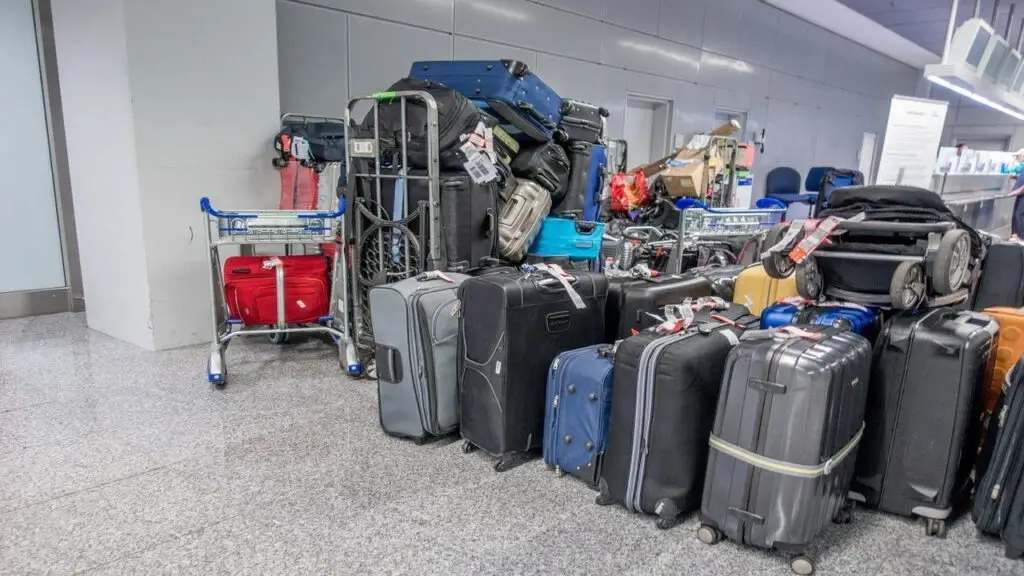
Airlines take responsibility for locating it and ensuring its prompt delivery to you. However, if your luggage destroy. It is important to file a claim with the airline and provide them with a detailed description of the missing items. Airlines have established procedures in place for reimbursement and compensation in such cases. It is crucial to report any delays or losses to the airline immediately so that they can initiate the necessary actions to resolve the situation.
Steps To Take Upon Realizing Your Luggage Is Lost
Upon realizing your luggage is lost, it is crucial to report it to the airline’s customer service desk immediately. Provide a detailed description of your luggage, including any identifying features or tags. Fill out a Lost Property Report and keep a copy for your records. Request a claim number or reference number for tracking purposes. Keeping all receipts for essential items purchased due to delayed or lost luggage is important.
How Airlines Handle Lost Luggage Situations
Airlines have dedicated staff responsible for handling lost luggage cases and assisting passengers in locating and retrieving their belongings. In the event of delayed luggage, airlines strive to deliver the bags to passengers’ final destinations within 24 hours.
Airlines have established procedures to compensate passengers for their lost items if luggage is lost. They employ tracking systems and tags to identify and locate lost luggage. Passengers strongly encourage to report any missing luggage immediately to ensure a prompt resolution.
How To Minimize The Risk Of Luggage Delay Or Loss
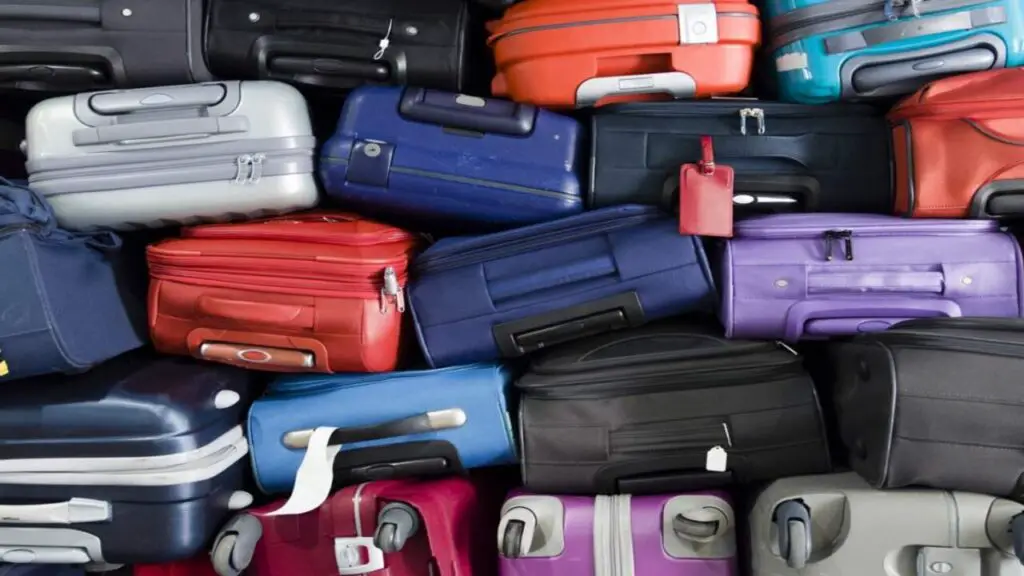
To minimize the risk of luggage delay or loss, there are several steps you can take. Firstly, pack essentials such as medications and valuables in your carry-on bag. Secondly, attach a durable luggage tag with accurate contact information.
Thirdly, arrive at the airport early to allow for sufficient baggage check-in time. Fourthly, photograph your luggage before checking it in for documentation purposes. Additionally, consider investing in travel insurance that covers lost or delayed luggage. Lastly, hold onto your baggage claim ticket until you retrieve your luggage from the carousel.
Best Practices For Baggage Check-In
When preparing for your flight, following these best practices for baggage check-in is crucial. First, arrive early at the airport to allow ample time for the necessary procedures. Next, keep your luggage labeled with your contact information and remove any old airline tags or stickers. Pack essential items in your carry-on bag and consider using a unique identifier, such as a brightly colored strap or tag, to identify your bag easily.
Is Investing In GPS Luggage Trackers Worth It?
Investing in GPS luggage trackers can benefit frequent travelers or individuals who frequently carry valuable items. These trackers provide the ability to quickly locate lost or misplaced luggage, offering peace of mind through real-time tracking capabilities.
However, it is crucial to weigh the cost of the tracker against the value of your luggage and the likelihood of it becoming lost. For travelers with high-value belongings or frequently encountering situations where luggage goes missing, GPS luggage trackers can be a worthwhile investment that provides added security and convenience.
How Has Luggage Retrieval Evolved Over The Years?
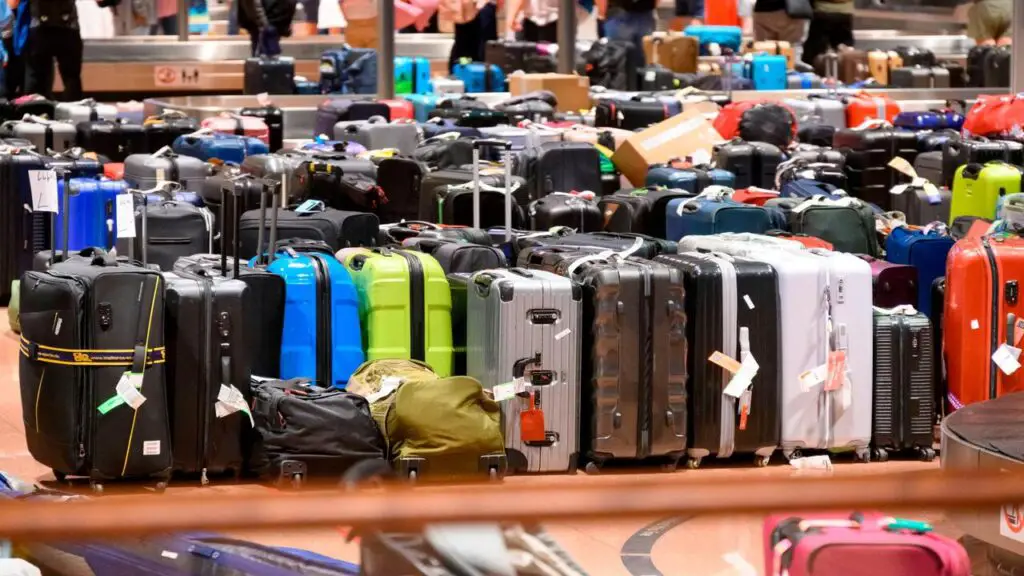
Luggage retrieval has evolved tremendously thanks to technological advancements. The introduction of automated baggage handling systems has revolutionized the process, replacing manual labor and significantly reducing retrieval times. RFID (Radio Frequency Identification) technology has easily made it possible to track and locate luggage.
Passengers can now conveniently monitor the whereabouts of their bags in real time through self-service kiosks and mobile apps, providing them with peace of mind and a hassle-free travel experience. These innovations have improved efficiency and enhanced customer satisfaction in the realm of luggage retrieval.
Conclusion
The duration of luggage retrieval after a flight can vary based on airport efficiency, passenger class, and baggage handling processes. On average, it takes a certain amount of time for luggage to be delivered to the designated area. However, delays or loss of luggage can occur, and it is essential to know the necessary steps to take in such situations.
To minimize the risk of luggage delay or loss, it is advisable to follow best practices during baggage check-in and consider investing in GPS luggage trackers. Over the years, advancements have been made to improve luggage retrieval processes. Still, being prepared and informed about the possibilities and procedures related to luggage retrieval after a flight is always helpful. Hope the above outline on how long it takes to get luggage after flight will help you to enhance your air travel knowledge.
Frequently Asked Questions
1.Why Does It Take So Long To Get Luggage After Flight?
Ans: Luggage retrieval after a flight can be time-consuming due to various factors. These include the size of the airport, the number of flights arriving simultaneously, and the multiple steps involved in baggage handling.
2.What Are The Best Airlines For Baggage Delivery?
Ans: Some airlines are known for efficient baggage delivery, ensuring a smooth travel experience. Singapore Airlines, Emirates, and Qatar Airways are among the top choices, but checking customer reviews for specific flights or routes is important.
3.Does The Airline Or Airport Have Any Responsibility For Delayed Baggage?
Ans: Yes, both the airline and the airport are responsible for delayed baggage. The airline is tasked with locating and delivering your luggage, so promptly report the delay to them. While you wait for your luggage, the airline may compensate you for essential items.
4.Which Is Better: A Private Shipping Company Or A Public Transportation Company?
Ans: Consider your specific needs when deciding between a private shipping company and a public transportation company. Private companies may offer faster, more personalized service, while public transportation companies may have more affordable rates and wider coverage.
5.Which Is Better: Self-Storage Or Commercial Storage Lockers?
Ans: When deciding between self-storage and commercial storage lockers, it’s important to consider your specific needs. Self-storage offers more space and flexibility, while commercial storage lockers are smaller and more secure. Cost, convenience, security, and accessibility should all be considered.
